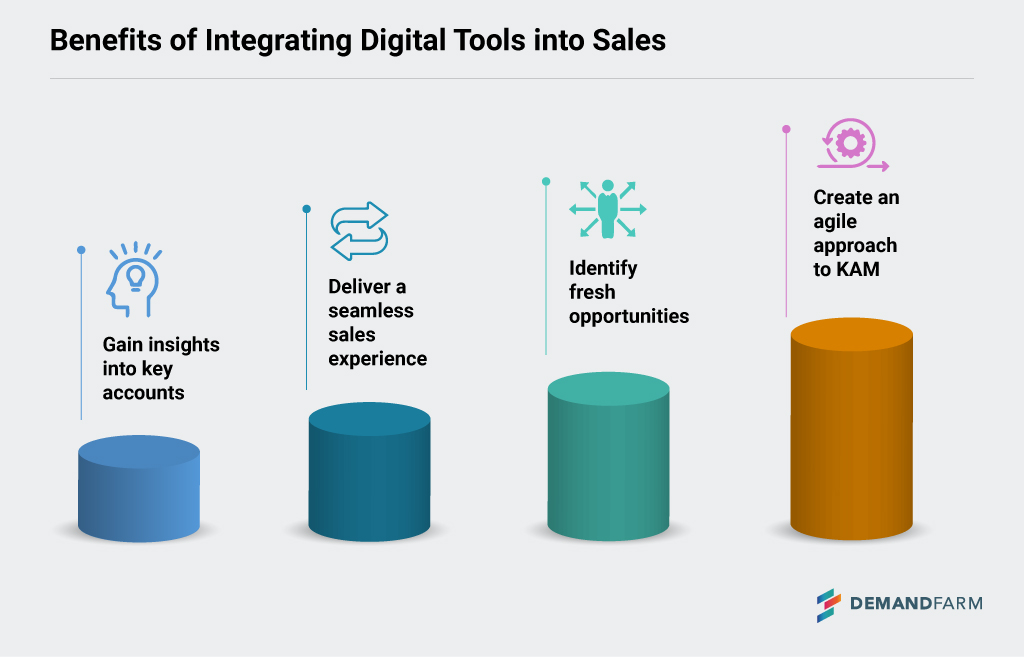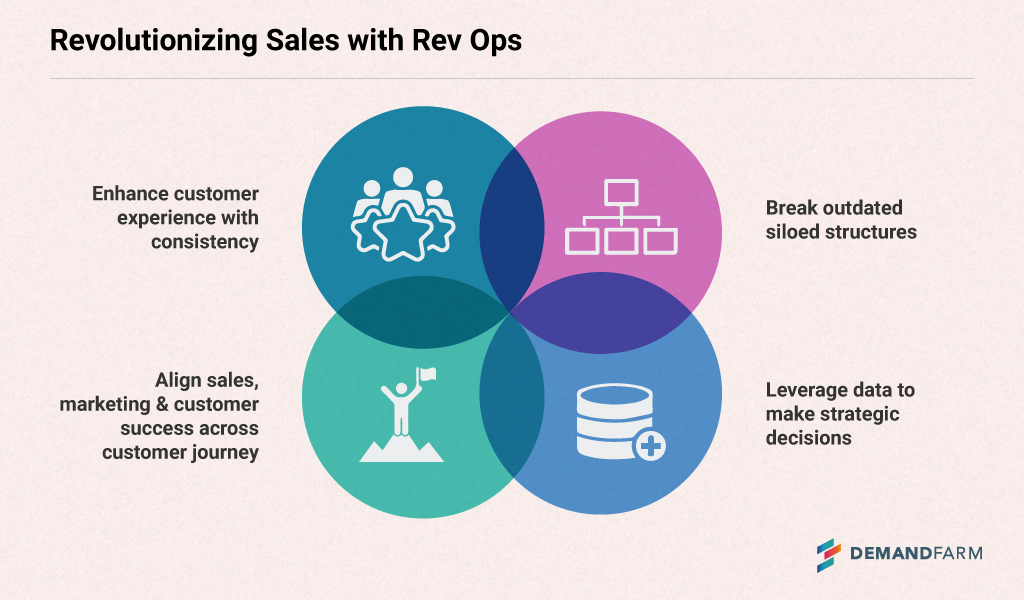In traditional sales operations, we have primarily focused on maintaining a healthy sales funnel, achieving high average win rates, and maintaining deal sizes. However, over the past decade, the selling process has undergone a complete transformation. We have transitioned to cloud-based and software selling models, shifting our focus to the customer’s product experience.
In this context, Revenue Operations (RevOps) has emerged as a pivotal strategy that aims to align sales, marketing, and customer success throughout the customer journey. The goal is to break down traditional silos and establish a more consistent approach to enhancing the customer experience.
The seamless integration of digital tools into the sales process has resulted in a more efficient and effective sales experience for both buyers and sellers. Digital transformation has opened up new possibilities for businesses, enabling them to deliver a seamless sales experience by streamlining processes, providing real-time data, and offering actionable insights. The RevOps team also collects, shares, and utilizes data to gain actionable insights that help teams make data-backed decisions.
“Contrary to popular opinion, Revenue Operations is not a fancy term for Sales Operations. We need to take a more expansive view of RevOps as a whole. There are a lot more people involved in the revenue generation activity such as the customer subscription manager, and renewal manager to ensure that the customer adopts the product and is seamlessly engaged. RevOps includes everything from marketing operations to sales operations to customer success operations that are part of a larger ecosystem that works with the aim of providing a unique and engaging customer experience.”- Prasad Varahabhatla, Senior Director, Sales & Data Operations, Philips (Snippets from episode #8 of the Shift podcast)
Sales teams can bank on AI-powered tools and data analytics to gain insights into their key accounts, identify new opportunities, and make more informed strategic decisions. The integration of digital tools and platforms has also created a more agile and adaptable approach to key account management, enabling swift adaptation to evolving market conditions, consumer expectations, and technological advancements.

Benefits of Integrating Digital Tools into Sales
- Gain insights into key accounts
- Identify fresh opportunities
- Deliver a seamless sales experience
- Create an agile approach to Key Account Management
According to Gartner, by 2025, 75% of the highest-growth companies in the world will implement the RevOps model. Moving forward, data will play a pivotal role in the success of any revenue operations strategy. By collecting, harnessing, and utilizing data, RevOps aims to foster even better synergy between marketing, sales, and success teams, ultimately leading to improved customer experiences.
Sales Automation with AI to Optimize Customer Experience
With the growing influence of RevOps and data-backed analytics, traditional strategies for one-off purchases are becoming redundant. Companies now focus on the entire customer journey and enhanced customer engagement to drive recurring revenues. The emphasis is on leveraging technological innovations, including artificial intelligence (AI), to automate workflows and achieve higher efficiencies. According to cross-functional research by the McKinsey Global Institute (MGI) technology can automate over 30% of sales and sales operations tasks. The most popular sales automation tools that harness AI include virtual assistants, chatbots, email, and appointment automation.

Revolutionizing Sales with RevOps
- Align sales, marketing & customer success across the customer journey
- Break outdated siloed structures
- Enhance customer experience with consistency
- Leverage data to make strategic decisions
From a skillset perspective, different teams that make RevOps need to be more curious and understand dependencies or processes that are dependent on them. They must possess a broader comprehension of the customer lifecycle and identify ways to eliminate friction from the customer experience.
“We focus so much on the book or the process, we forget that these processes are there for a purpose which is to ease the way our customer or salesperson experiences the entire process. There’s a need for digital technology to automate non-value-added manual tasks and develop a level of transparency and seamlessness in the way the sales team or customer experiences our delivery.” – Prasad Varahabhatla, Senior Director, Sales & Data Operations, Philips (Snippets from episode #8 of the Shift podcast)
Customer Adoption and Long-term Value Creation
To boost revenue, cultivating long-term engagement with customers is essential. Achieving this requires consistent reminders of your product’s value and sustained value creation. The responsibility falls on the customer success manager to showcase the product’s features and benefits and how they add value to the customer. Customer value creation is integral to any business strategy and is increasingly driven by data-enabled insights and AI-powered tools. The adoption of digital tools allows you to comprehend evolving consumer needs and tailor your offerings accordingly.
Depending on customer needs, systems must constantly evolve while ensuring the structures remain modular and scalable. Institutionalizing systems must be planned out in such a way that just a few tweaks can accommodate new features without having to make fundamental architectural shifts.
The consumer and market constantly commands changes, and when that happens you must be ready with the right structures, technology, and solution architecture.
Adopting a digital-first mindset is the initial step in streamlining the customer experience.
“It’s not even a matter of choice anymore and the assumption that digital transformation is a choice is a joke. If digital transformation is implemented by a company and it doesn’t fundamentally change the job content of the people involved in that process, then we are doing it all wrong.” – Prasad Varahabhatla, Senior Director, Sales & Data Operations, Philips (Snippets from episode #8 of the Shift podcast)
The Future is Digital
Information and the power of data can be the deciding factors for the success of Rev Ops and your consumer engagement strategy. If Rev Ops is the machine, data is the fuel that keeps it running. If you can’t track customer data, manage assets, or use this information for future sales, you’ll miss out on opportunities.
“RevOps is a relay race and not a 100-meter dash and the most efficient way of implementing this is through digital transformation and data,” – Prasad Varahabhatla, Senior Director, Sales & Data Operations, Philips (Snippets from episode #8 of the Shift podcast)
For more insights on Rev Ops and the digital transformation of sales, listen to our podcast: https://www.demandfarm.com/podcasts/the-shift-podcast-on-digital-key-account-management-prasad-varahabhatla-philips/

